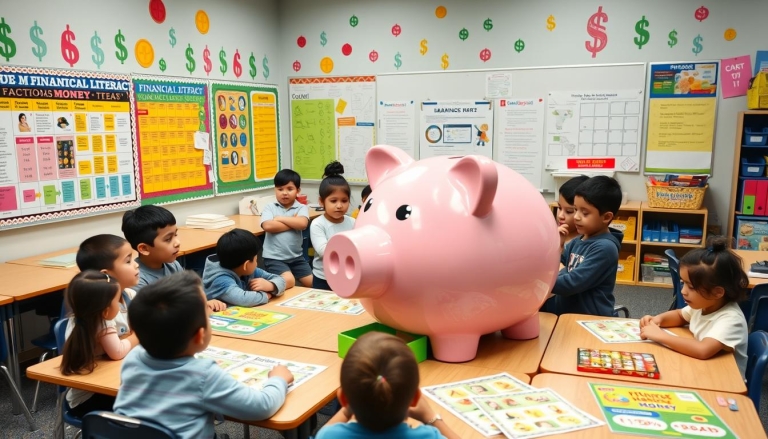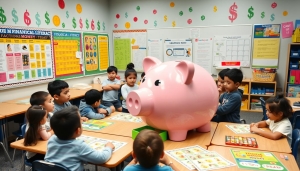
In times of economic instability, knowing where to invest is crucial. Investment and savings are common options. But which one yields the most? Let's explore these alternatives, giving tips for successful investing and making a investment comparison.
It is essential to understand the characteristics of each method. This helps to maximize profits and manage money effectively. Let's analyze the advantages and disadvantages of each option, as well as the profitable investment options in the market. This way, you will know where your money can yield the most.
Main Points
- Clear definition of investment and savings
- Analysis of the advantages and disadvantages of each option
- Comparison of returns between investment and savings
- Impact of the current economic scenario in Brazil
- Strategies and tips for successful investing
Understanding Savings
Savings accounts are a safe way to save money in Brazil. They are the first choice for those looking to financial security. Over time, the money earns interest, offering a secure income.
What is savings?
A savings account is a bank account for storing money. It offers a small interest rate on the balance. It is popular for those who want to keep money safely.
Advantages of using savings
The advantages of savings include:
- Financial security: Savings are protected by the Credit Guarantee Fund (FGC) up to R$250,000 per bank. This provides security for those who invest little.
- Ease of access: It's simple to open and maintain a savings account. There are no maintenance fees.
- Income Tax Exemption: Savings income is not subject to income tax. This can be advantageous compared to other investments.
Disadvantages of savings
The disadvantages of savings include:
- Low income: The savings income is low compared to other investments. In high inflation, it is even lower.
- Limited profitability: The rate of return on savings is fixed. This limits earnings in times of economic growth.
- Less variety: Savings accounts do not offer diversification. This can be a problem for those seeking higher returns and financial security in the long term.
Investment Basics
It is crucial to understand the investment basics to grow your money. Investing means using money to earn more in the future. Start by learning about financial education to make better decisions.
What is an investment?
Investing is putting money into something that may yield a profit in the future. There are many types of investments, such as stocks, bonds, and real estate. Each has its own risks and possibilities of making money.
See a list of the main types of investments:
| Investment Type | Description | Risk | Expected Profitability |
|---|---|---|---|
| Actions | Part of the capital of a company | High | High |
| Titles | Loan to government or corporations | Low to moderate | Low to moderate |
| Investment Funds | Collection of professionally managed assets | Variable | Variable |
| Real Estate | Buying, selling or renting properties | Moderate | Moderate to high |
THE investment profitability is the profit you make with your money. Knowing about this helps you choose the best investment strategies. This allows you to adjust your money according to your goals and the risk you can bear.
Investment or savings, Best return, Where to invest
When we think about investing or saving, many things need to be considered. The big difference is in long-term profitability. Investments usually offer better returns than savings.
Investing wisely is crucial to achieving the best results. It is important to know your risk profile and financial goals. If you are looking for security, Treasury Direct bonds may be the best choice. Those who are willing to take risks may consider stocks and real estate funds.
Below is a detailed comparison between savings and some investment options available on the Brazilian market:
| Option | Long-Term Profitability | Liquidity | Risk |
|---|---|---|---|
| Savings | Low | High | Low |
| Direct Treasury | Average | Average | Low |
| Actions | High | High | High |
| Real Estate Funds | High | High | Average |
It is essential to carry out a careful analysis before investing. Investing in the financial market can be more profitable than saving. Each investment has its own characteristics. The right choice depends on the risk you are willing to take and the time you have to wait for the results.
Diversification: How to Minimize Risks
Diversifying investments is essential to managing risk and building a strong portfolio. Let’s talk about the importance of diversification, key strategies, and common mistakes to avoid.
Importance of diversification
Diversification helps reduce the risk of a single investment. By investing in different markets, you protect your portfolio from large losses. This is very important for a risk management effective.
Diversification strategies
There are several ways to diversify investments. Investing in stocks, bonds, real estate, and commodities is a common strategy. Additionally, diversifying geographically helps you weather economic fluctuations.
- Allocation across different asset classes.
- Investments in various sectors of the economy.
- Application in different geographic markets.
- Use of various financial products, such as ETFs and investment funds.
Common Mistakes in Diversification
While diversification is essential, some mistakes can undermine your strategy. Ignoring correlation between assets and overweighting your portfolio are common pitfalls. It’s crucial to revisit and adjust your strategy regularly to maintain effective diversification.
| Common Mistake | Impact |
|---|---|
| Ignore correlation between assets | Increases risk instead of reducing it |
| Excess of similar products | Limits the benefits of diversification |
| Failure to readjust the portfolio | Misalignment with financial goals |
Comparative Analysis: Investment vs. Savings
Choosing between investing and saving requires considering several important factors. The investment comparison shows that savings are safe and easy to access. On the other hand, investments can offer higher returns with a good financial planning. This
Compound interest is essential for investment growth over time. Savings accounts are fixed by the government, but investments can offer varying returns, especially at high rates. This makes investments more attractive to those seeking better returns. income in Brazil, especially in the medium and long term.
THE inflation is also crucial in this investment comparison. Savings often do not outpace inflation, reducing the purchasing power of money. On the other hand, investments such as stocks and real estate funds can grow above inflation, increasing the amount invested.
You taxes are also important. Savings are exempt from Income Tax for individuals, but many investments are taxed. With a good financial planning, it is possible to reduce these impacts and increase returns.
| Factor | Savings | Investments |
|---|---|---|
| Security | High | Variant |
| Potential Yield | Low | High |
| Impact of Inflation | Negative | Positive |
| Taxation | IR exempt | Taxed |
In short, both savings and investments have their place in financial planning. The ideal choice depends on the investor’s personal goals, time horizon and risk profile. With this understanding, it is possible to make more informed decisions and achieve better financial results in the long term.
Conclusion
This article shows the importance of having a smart financial planning. Savings and investments have their advantages and disadvantages. It is crucial to understand your financial needs and goals to choose the best path.
Invest in financial education and seeking professional advice are important steps. They help maximize the return on your money. In addition, diversifying your investments can reduce risk. This way, you will make safer decisions that are appropriate for your profile.
We encourage our readers to continue learning about investing. It is essential to improve your skills in this field. Knowledge is the foundation for a successful financial planning effective, increasing your assets.











